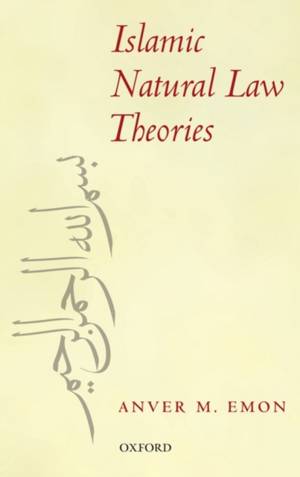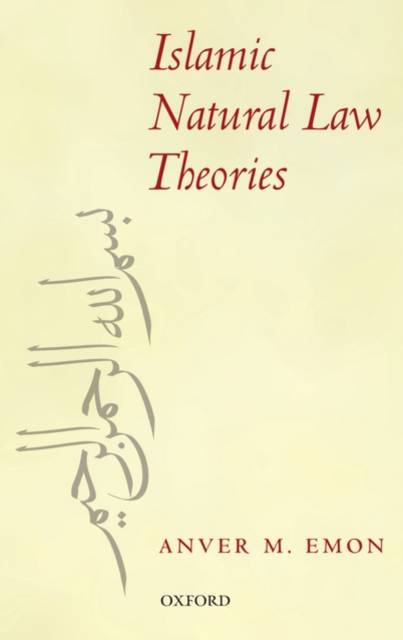
Je cadeautjes zeker op tijd in huis hebben voor de feestdagen? Kom langs in onze winkels en vind het perfecte geschenk!
- Afhalen na 1 uur in een winkel met voorraad
- Gratis thuislevering in België vanaf € 30
- Ruim aanbod met 7 miljoen producten
Je cadeautjes zeker op tijd in huis hebben voor de feestdagen? Kom langs in onze winkels en vind het perfecte geschenk!
- Afhalen na 1 uur in een winkel met voorraad
- Gratis thuislevering in België vanaf € 30
- Ruim aanbod met 7 miljoen producten
Zoeken
Islamic Natural Law Theories
Anver M. (Assistant Professor at the Faculty of Law, University
Hardcover
€ 178,95
+ 357 punten
Omschrijving
This book offers the first sustained jurisprudential inquiry into Islamic natural law theory. It introduces readers to the central figures in the Islamic natural law tradition and their canonical works, analyses the historical development of Islamic jurisprudence and explains the major contrasts with Western traditions of natural law.
Specificaties
Betrokkenen
- Auteur(s):
- Uitgeverij:
Inhoud
- Aantal bladzijden:
- 240
Eigenschappen
- Productcode (EAN):
- 9780199579006
- Verschijningsdatum:
- 8/04/2010
- Uitvoering:
- Hardcover
- Afmetingen:
- 149 mm x 223 mm
- Gewicht:
- 434 g

Alleen bij Standaard Boekhandel
+ 357 punten op je klantenkaart van Standaard Boekhandel
Beoordelingen
We publiceren alleen reviews die voldoen aan de voorwaarden voor reviews. Bekijk onze voorwaarden voor reviews.









